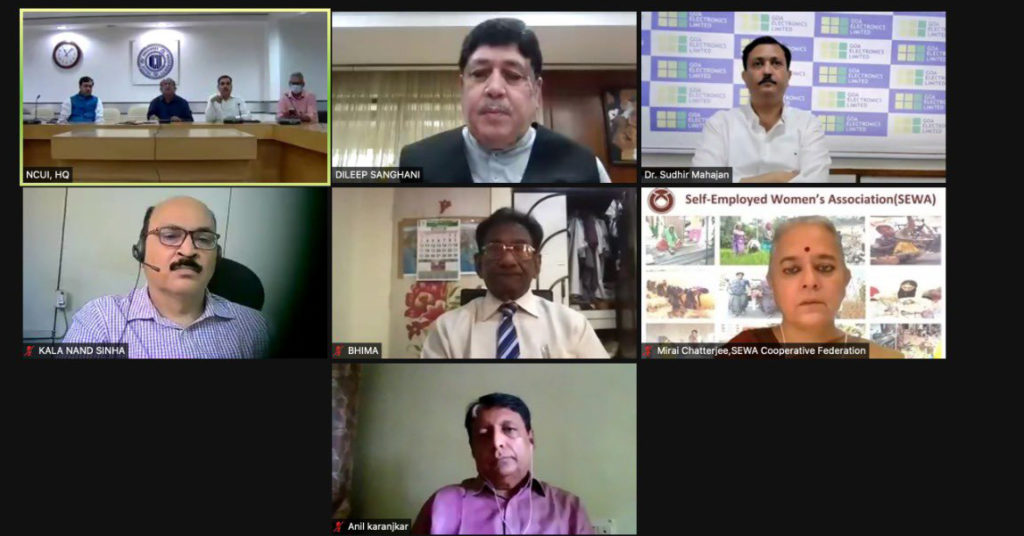NCUI organized a National Webinar on ‘Reformulating National Policy on Cooperatives’ last week which was attended by some of the GC members, Chairman and MDs of several national level and state federations, academicians, experts, and others. The objective of the webinar was to invite suggestions from all the stake-holders so that these can be submitted to the government. A range of views emerged during the discussions, informs a press release issued by the apex body.
In his opening remarks, Dr Sudhir Mahajan, Chief Executive, NCUI said that the Coop Policy needs to be reformulated to make it more relevant to changing times. ‘Factors like technology, sustainable development, inclusive growth, active women and youth participation, etc clearly indicate the need for a paradigm shift, he elaborated.
In his presidential remarks, NCUI President Deelip Sanghani said ‘Reformulating National Policy on Cooperatives, and bringing in changes in Multi-State Cooperative Societies Act are very important for democratic growth of cooperatives’.
Moving in the footsteps of Prime Minister Narendra Modi, Sanghani advocated the idea of “one nation on co-op act”. Uniformity in co-op laws would make it easy not only for us but also for govts, added Sanghani
Dr Bijender Singh, Vice President, NCUI suggested cooperation as an elective subject should be introduced in school syllabus for making the foundation of the cooperative movement strong.
HK Patil, former Minister, Govt of Karnataka, Member, NCUI Governing Council said there is a big need to bring the unorganized sector into the cooperative fold, and the new Policy must highlight this issue. Lamenting the fact that various concessions and privileges to corporates are disproportionately higher as compared to cooperatives and the unorganized sector, he said. Patil urged co-operators to work together in the best possible ways to formulate the best National Cooperative Policy.
B Subrahmanyam, Managing Director, NAFSCOB said though the current Policy Document remains more relevant after two decades, this calls for more para-wise revision as the implementing agencies have failed to achieve the objectives. He further said that while roles of GOI and state governments may be specified in the new Policy Document, ILO recommendation 193 on promotion of cooperatives may be considered for incorporation in the new Policy.
KK Ravindran, MD of National Cooperative Agriculture and Rural Development Banks’ Federation said that as the earlier policy did not achieve its objectives, the present policy must be made implementable with clearly defined Action-plans. He suggested the new Policy must focus on computerization of all sectors of the cooperative movement, enhancing the role of national federations, strengthening self-regulation, creating recruitment systems to bring in professional staff, etc.
Ms Mirai Chatterjee, Chairperson, SEWA, came up with many suggestions which should be reflected in the new Policy. These are – creation of coop entrepreneurial development fund for rejuvenation of cooperatives, providing package of services to tiny and small coops, formulating fellowship programs on cooperativism for youth, convergence and collaboration between Ministries and departments, improving data collection for women coops, etc.
Several prominent academicians and others also intervened in the webinar making invaluable suggestions.
The webinar recommended with unanimity that in order to draft National Policy on Cooperatives, a representative Committee should be constituted by the government, in which NCUI must have a leading role.
Sanjay Verma, Dy Director (PR/Pub), NCUI coordinated the webinar. Ved Prakash proposed a vote of thanks on the occasion.
